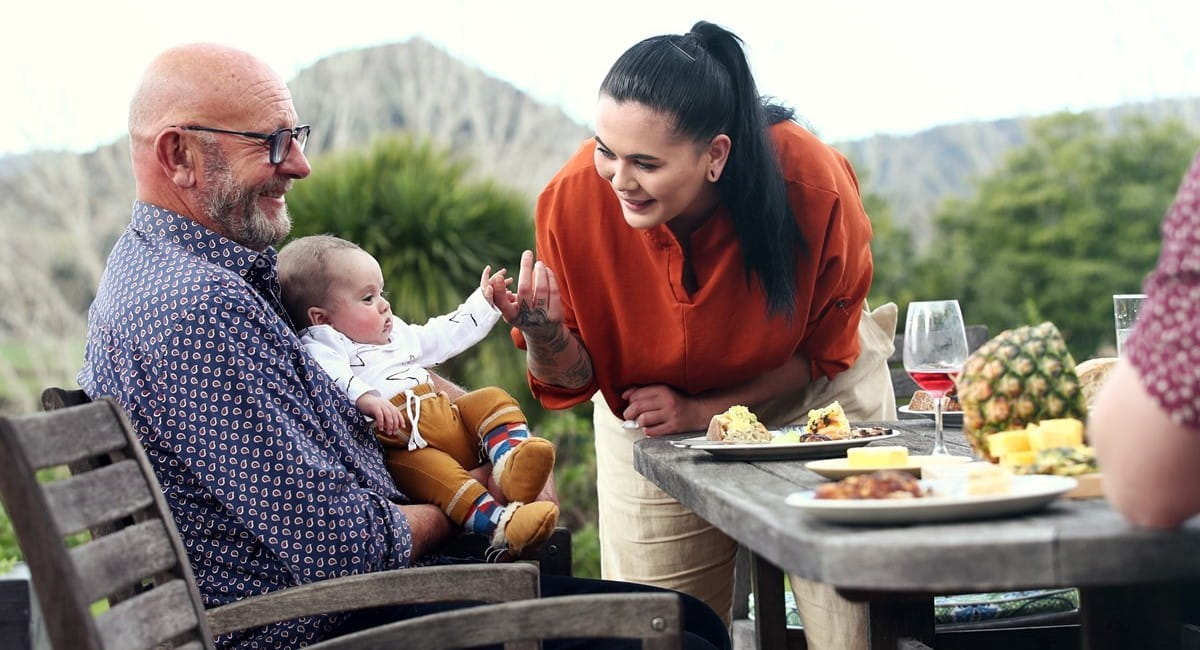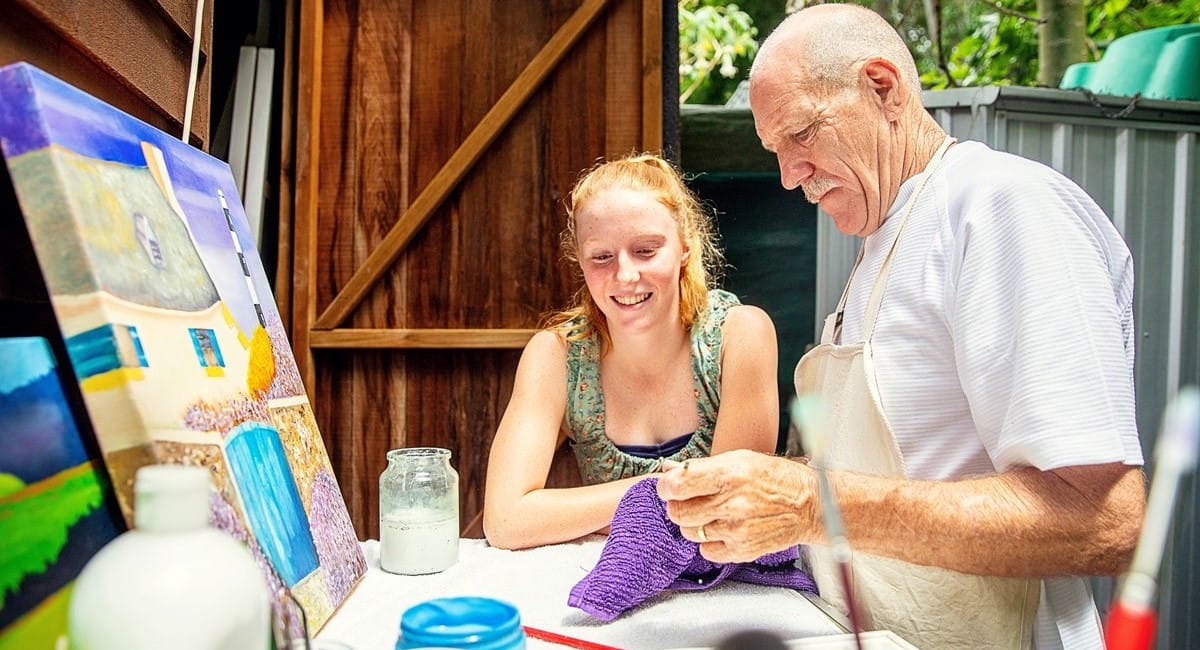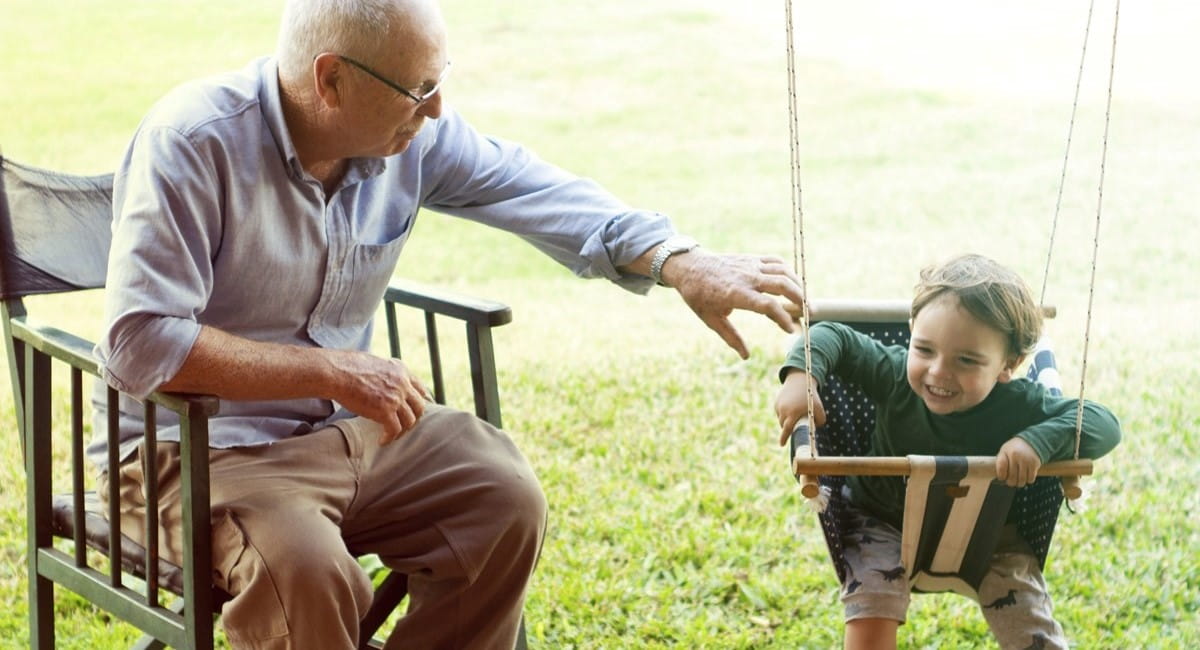“People who've had a lot of experience in life can be good supporters for younger people, because they've often been through challenging situations themselves when they were younger and so can be a good sounding board.”—Professor John McCallum, CEO of National Seniors Australia.
Key points
- Research shows that relationships between kids and older adults have a positive impact on both parties.
- If your kids lack access to a grandparent, facilitating a relationship with an older neighbour, for example, can be a way to organically nurture a connection.
- Volunteering programs at aged care residences are another way to build relationships with older people – and doing so can help your child’s personal development.
The lack of a full-time stay-at-home parent can often heap extra pressure on the precarious balancing act that is domestic life. With most Australian households now consisting of two working parents, things can get tricky when you’re hit by one of life’s regular curve balls.
It’s during these times that grandparents usually step in. Whether it’s looking after a sick child or helping with after-school pick-ups and care, grandparents are the social glue in modern family life that stops everything from collapsing into howling chaos.
All of which can prove an absolute godsend for a frazzled parent. But the benefits of having an older person around go considerably deeper than mere logistical support.

Fostering relationships
A report from the Stanford Center on Longevity found that older people can play critical roles in the lives of young people, providing a level of attention and support that many children and teens often miss out on because of the busyness of family life.
Today, older people are not only healthier and living longer, but during their retirement years they’re also more likely to have the necessary time to nurture these relationships. The far-reaching impact that older adults can have on young people was hammered home by the title of the report: Hidden in plain sight: how intergenerational relationships can transform our future.
None of this comes as any great surprise to Professor John McCallum, CEO of National Seniors Australia, a not-for-profit advocacy group for older Australians and an Australian Unity health insurance partner.
“I think older people can be like everybody else – some are wise, some aren't, some are nice, some aren't,” admits John. “But generally speaking, I think people who've had a lot of experience in life can be good supporters for younger people, because they've often been through challenging situations themselves when they were younger and so can be a good sounding board. Older people can be mentors to guide and direct.”
All of which are excellent reasons to try and foster a strong relationship between your kids and their grandparents. We know through the Australian Unity Wellbeing Index, conducted in partnership with Deakin University, that relationships are important to our wellbeing. But what do you do if your parents are no longer around or live on the other side of the world? In such circumstances, how do you ensure your children don’t miss on the proven benefits of having older people in their lives?

Facilitate the opportunity
The ideal solution is for an intergenerational relationship to naturally develop. Says John: “It can often happen organically, so a neighbour, for example, will become a sort of substitute grandparent or someone down the street takes a shine to the little boy or girl. I think those things can be and should be facilitated.”
The key word here is “facilitate”. If you notice your child has a soft spot for a particular older person, try to create opportunities for that relationship to blossom. You might start visiting the older person more regularly, for example, or invite them around for a weekly coffee. But, as John concedes, such an arrangement does require an element of good fortune: “It’s not easy to construct or manufacture.”
Yet he also points out that if there doesn’t happen to be a kindly septuagenarian living next door then you’ve hardly exhausted your options.
“We know that probably around 40 percent of people in residential aged care are never visited – that's a rough estimate,” says John, which could provide a unique and potentially life-changing opportunity for your child and an aged-care resident to hit it off.
Volunteer programs
Gregor Poole, Community Development Manager at Australian Unity’s Rathdowne Place, an aged care residence in Melbourne with 161 residents, also sees the value in uniting older people and kids.
“We have a very strong intergenerational program here,” he says. “The kindergarten and quite a few local schools send students to Rathdowne Place to spend time and interact with the residents. They love hearing the residents tell stories or they dance or sing with them. They just like relaxing with them.”

Those specific initiatives are run with schools from the area, but opportunities also exist for other parents to get their children involved in the form of volunteer programs. “Sometimes we encounter families who want their children to connect with the older community,” explains Gregor. “Which we help facilitate by encouraging them to sign up as volunteers so we can match them with a resident or two.”
A number of studies reveal the benefits of such intergenerational programs. For children and teens, participation in these activities can help their personal development and ability to self-regulate their emotions.
Yet there are real advantages for older people too. Involvement in these programs is proven to have a range of benefits, from boosting aged-care residents’ sense of engagement and enjoyment to increasing the self-esteem of people living with dementia.
Gregor regularly witnesses the fruits of such interaction. “Both parties just love it – I've seen some amazing relationships flourish here,” he says. “I think one of the things that younger people seem to be drawn to is the experiences and the stories that the community have about their past. Many younger people are surprised when older people start telling their stories and realise: ‘Wow! They've made such a big contribution to our culture and our community’.”
Having worked in aged care for a decade, Gregor has first-hand experience of the positive influence that regular contact with older people can bring. After all, that’s exactly what happened to him.
“When you see the people here who are in their 80s and 90s, and they're still so vibrant, you just think: ‘I hope that when I age, I'm like that’,” he says. “That’s definitely had an effect on me. I've learned not to regret things so much and to embrace my life for what it is. Just to try and enjoy it as much as possible.”
Disclaimer: Information provided in this article is of a general nature. Australian Unity accepts no responsibility for the accuracy of any of the opinions, advice, representations or information contained in this publication. Readers should rely on their own advice and enquiries in making decisions affecting their own health, wellbeing or interest. Interviewee titles and employer are cited as at the time of interview and may have changed since publication.


